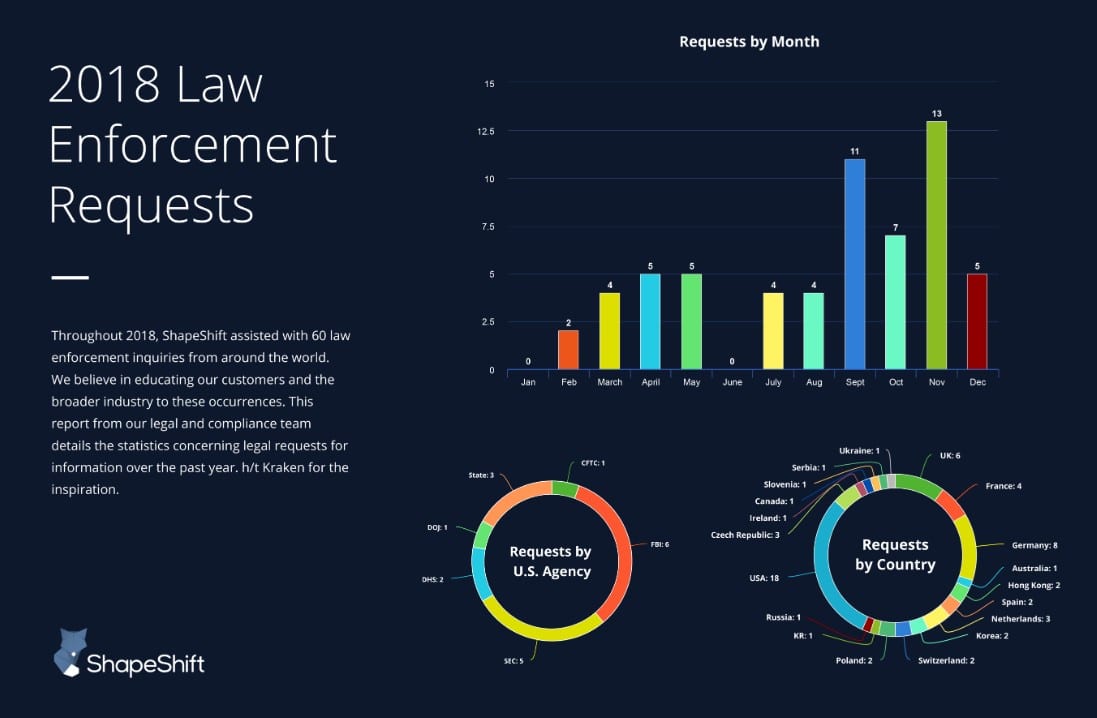ShapeShift Uncovers its Secret on How to Stay Compliant

Cryptocurrency is still an emerging industry and regulation is still trying to keep up. While there are few assertive regulatory frameworks in the world, crypto-related companies are often requested to provide information to law enforcement agencies. On January 18, 2019, ShapeShift came forth to reveal how it handles this matter.
Providing Information to Law Enforcement Agencies
ShapeShift, one of the most popular cryptocurrency exchanges, recently posted an article on its official blog where it describes how common it is for authorities to approach financial companies regarding legal compliance. The company wrote about how these processes are normally “opaque” and defended the idea that this should be an open process as it uncovers how it handles law enforcement compliance.
The cryptocurrency exchange revealed its cooperation with 60 law enforcement inquiries from several countries in the world in 2018. While some countries have specific rules for this type of engagement others do not have procedures to follow. In the USA, however, these requests come in the form of subpoenas.
According to the post, a subpoena “is a court-ordered request compelling a person or company to take some sort of action. There are two types of subpoenas in the U.S. The first kind requires testimony before the court or legal authority. The second type is a request for documents, materials or other types of evidence (these are the types of subpoenas that ShapeShift regularly receives).”
The company has been called to address such subpoenas as public records drew suspicion following several transactions made to one of the exchange’s “Master Addresses.” While transactions can carry tainted coins, the exchange tries at its best to stay as transparent as possible and cooperate with law enforcement agencies around the world to avoid legal indictments.
In the post, ShapeShift even reveals documents related to the law enforcement requests all in the interest of transparency and to keep a trusted environment with its users and investors. The report shows each of these requests one by one. The graph below shows how ShapeShift manages the law enforcement requests. The exchange groups the requests by country of origin, and viewers can easily check that U.S. agencies have the most requests.

(Source: ShapeShift)
Handling Law Enforcement Requests
ShapeShift states it only answers to official legal requests and whenever the exchange receives a subpoena from a law enforcement department, its legal and compliance operations office takes care of the incident to streamline the process directly with the agency in question. As the majority of the information in the investigations is often confidential, the exchange keeps the information within its legal department and before answering these requests within one to two weeks depending on the number of requests and employee resources.
Apart from ShapeShift, Kraken launched a similar initiative to implement more transparency to requests made by law enforcement agencies in the cryptocurrency space. ShapeShift has always stood behind financial transparency as its core principle, and, as such, the company believes it needed to get this information out.













